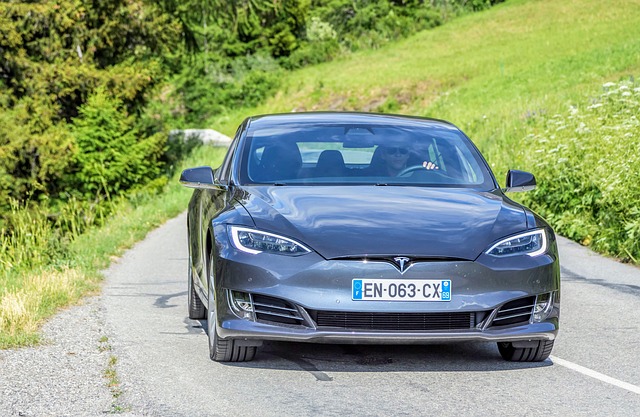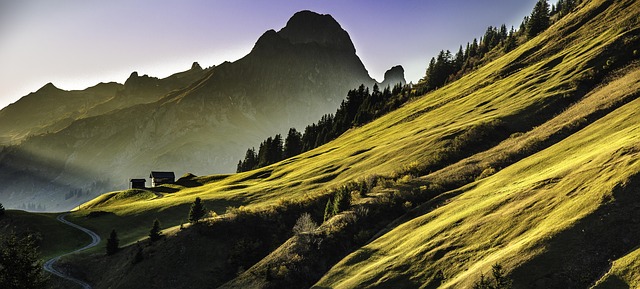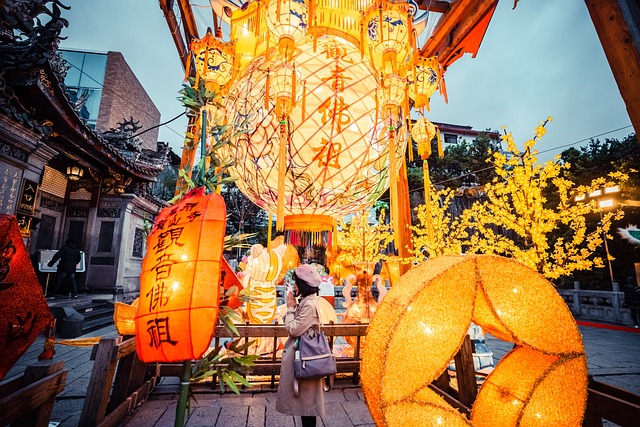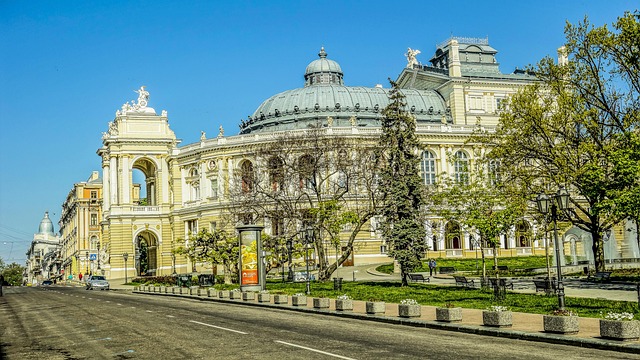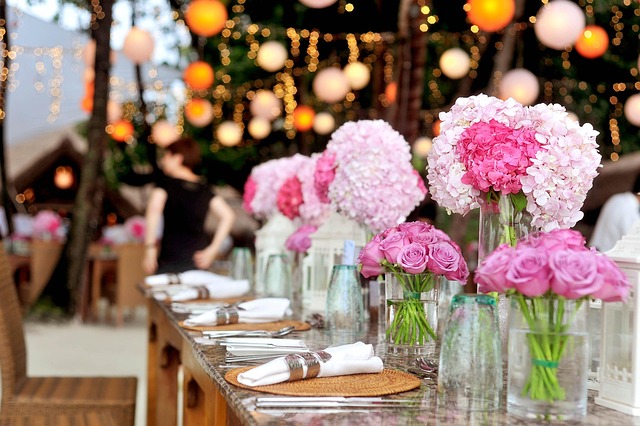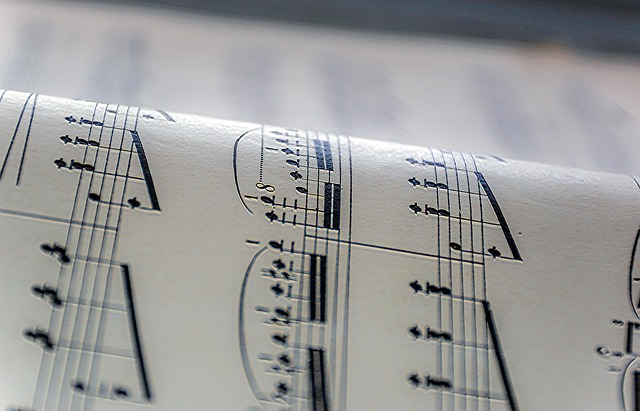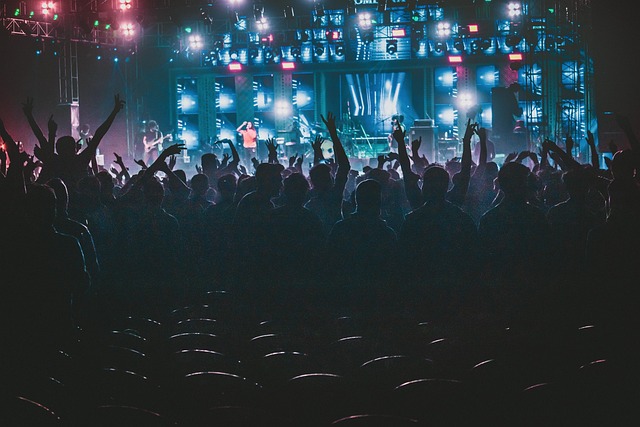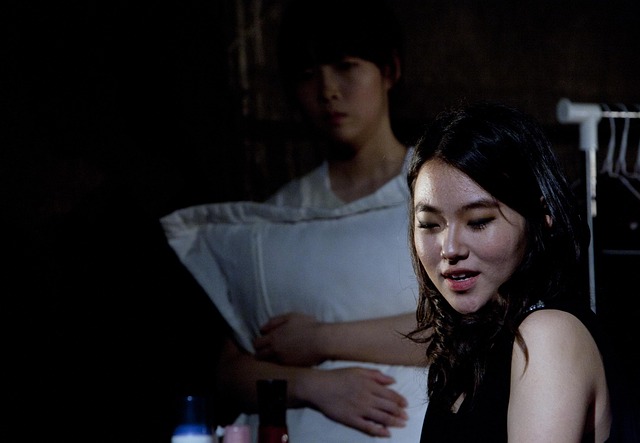Category: Cultural Events In Eugene Oregon
Cultural Events in Eugene, Oregon: A Comprehensive Overview
Introduction
Eugene, Oregon, is a vibrant city renowned for its rich cultural offerings and diverse community. The city’s cultural events scene is a dynamic and ever-evolving landscape that attracts both locals and visitors alike. This article aims to provide an in-depth exploration of the various cultural events that define Eugene, their historical roots, global influences, economic impacts, and future directions. By delving into these aspects, we will uncover the significance of Eugene’s cultural events and their role in shaping urban life and fostering community engagement.
Understanding Cultural Events in Eugene, Oregon
Definition and Core Components
Cultural events in Eugene refer to a wide array of artistic, educational, and recreational activities that celebrate local heritage, promote diverse cultures, and foster community interaction. These events encompass music festivals, art exhibitions, theater performances, cultural parades, film screenings, culinary experiences, and historical reenactments, among others. The core components include:
- Arts and Music: Eugene is home to numerous art galleries, music venues, and performing arts centers that host concerts, plays, dance performances, and visual art exhibits throughout the year.
- Cultural Festivals: The city boasts a vibrant festival calendar featuring events like the Oregon Folk Festival, Eugene International Film Festival, Lane County Fair, and various cultural celebrations showcasing ethnic diversity.
- Community Events: Local neighborhoods organize block parties, farmers’ markets, and community picnics that bring residents together and foster a strong sense of belonging.
- Historical Reenactments and Heritage Celebrations: These events preserve local history, such as the annual Old Time Threshing Days celebration, featuring historical demonstrations and vintage machinery.
Historical Context
Eugene’s cultural event scene has evolved over time, reflecting the city’s rich history and demographic changes. The early 20th century saw the establishment of several cultural institutions, including the Eugene Symphony Orchestra (founded in 1931) and the Oregon Dance Theatre (1941). These pioneers laid the foundation for a thriving arts community. In recent decades, immigration and diverse population shifts have enriched the city’s cultural fabric, leading to more inclusive and diverse events. Today, Eugene’s cultural calendar is a vibrant tapestry of local traditions and global influences.
Significance in the Broader Landscape
Cultural events play a pivotal role in shaping Eugene’s identity as a culturally rich and welcoming community. They contribute to:
- Community Cohesion: These events bring people from all walks of life together, fostering social connections and a sense of shared civic pride.
- Tourism Boost: Cultural festivals and performances attract visitors, stimulating local businesses and the economy.
- Preservation of Heritage: Historical reenactments and cultural celebrations help preserve and share Eugene’s unique history and ethnic diversity.
- Artistic Expression: They provide a platform for local artists, musicians, and performers to showcase their talents.
- Educational Opportunities: Many events offer workshops, lectures, and interactive experiences that enhance cultural literacy and learning.
Global Impact and Trends
International Influence
Eugene’s cultural events have gained international recognition, attracting artists, performers, and visitors from around the world. The city’s reputation for hosting high-quality arts festivals and diverse cultural celebrations has contributed to its global appeal. For instance, the Oregon Folk Festival, founded in 1964, is one of the oldest and most respected folk music gatherings globally, drawing participants and spectators from numerous countries.
Shaping Trends
Several key trends are shaping the future of cultural events in Eugene:
- Diversity and Inclusion: There is a growing emphasis on celebrating cultural diversity, ensuring accessibility, and promoting inclusivity in all aspects of the event planning process.
- Sustainability: Many organizers are adopting eco-friendly practices, such as reducing waste, encouraging public transportation, and featuring local and sustainable vendors.
- Technology Integration: Digital tools are enhancing event experiences, from virtual reality (VR) and augmented reality (AR) elements in exhibitions to live streaming performances for global audiences.
- Community Engagement: There is a rising demand for events that involve community participation, co-creation, and collaboration, fostering a sense of ownership among residents.
Regional Affects
The cultural events scene in Eugene has influenced and been influenced by neighboring regions:
- Pacific Northwest Region: Eugene’s festivals and performances often showcase the unique cultural identity of the Pacific Northwest, featuring indigenous art, music, and storytelling.
- Global Connection: International artists and performers drawn to Eugene’s reputation have helped foster cultural exchanges and collaborations with other cities worldwide.
- Regional Collaboration: Local events organizers collaborate with neighboring towns and cities to create multi-cultural celebrations, attracting larger audiences and promoting regional unity.
Economic Considerations
Market Dynamics
Cultural events in Eugene contribute significantly to the local economy:
- Tourism Boost: Festivals and performances attract visitors who spend money on accommodations, dining, retail, and entertainment, stimulating various sectors of the local economy.
- Art Market: Art exhibitions, sales, and auctions generate revenue for artists and art businesses, fostering a thriving creative economy.
- Event Planning and Services: The industry supports numerous event planning companies, catering services, security firms, transportation providers, and other related businesses.
Investment Patterns
The city has seen increased investment in cultural infrastructure:
- Public Funding: Local governments allocate budgets for cultural events, art galleries, and performance venues, ensuring their sustainability.
- Private Sponsorships: Businesses and corporations sponsor events, leveraging brand visibility while supporting the arts and community development.
- Crowdfunding: Many event organizers rely on crowdfunding platforms to raise funds, tapping into the collective support of the community.
Economic System Integration
Cultural events are integral to Eugene’s economic system:
- Job Creation: They generate employment opportunities in various sectors, from event staffing to creative industries and hospitality.
- Revenue Generation: Ticket sales, merchandise, concessions, and sponsorship revenue contribute to the overall economic health of the city.
- Business Development: Cultural events attract entrepreneurs, fostering the growth of new businesses and startups centered around arts, entertainment, and tourism.
Technological Advancements
Impact on Cultural Events
Technology has revolutionized the cultural events landscape in Eugene:
- Digital Marketing: Social media platforms, email marketing, and online event listings have expanded reach and attracted younger audiences.
- Live Streaming: Performances and festivals can now be broadcast live, allowing global access and engaging remote spectators.
- Interactive Experiences: Augmented reality (AR) and virtual reality (VR) technologies enhance exhibitions, providing immersive experiences that attract tech-savvy visitors.
- Event Management Software: Organizer tools streamline event planning, ticket sales, and attendee engagement, improving overall efficiency.
Future Potential
The future holds immense potential for technological integration:
- Virtual Reality Festivals: Immersive VR festivals could offer unique artistic experiences, connecting remote audiences with local events.
- AI-Curated Content: Artificial intelligence (AI) can personalize event recommendations and create tailored schedules, enhancing attendee satisfaction.
- Blockchain for Ticketing: Blockchain technology can provide secure, contactless ticket sales and access control, reducing queue times and fraud.
- Smart City Integration: Sensor technology and data analytics can optimize event logistics, waste management, and public transportation during busy periods.
Policy and Regulation
Key Policies and Regulators
Several entities govern cultural events in Eugene:
- Local Government: The City of Eugene’s Cultural Services Department oversees event planning, licenses, and permits, ensuring compliance with local laws and regulations.
- State Agencies: The Oregon Arts Commission provides funding, grants, and resources to support artistic endeavors and cultural events across the state.
- National Organizations: National arts advocacy groups and cultural institutions offer guidelines, best practices, and networking opportunities for event organizers.
Influencing Factors
Policies and regulations have a significant impact on the cultural events scene:
- Funding and Support: Government policies determine funding allocations, grant programs, and tax incentives that support cultural initiatives.
- Licensing and Permitting: Regulations dictate event planning processes, including venue selection, noise levels, food service, and safety measures.
- Cultural Representation: Policies promote diversity and inclusivity, ensuring various cultural voices are represented in events and funding opportunities.
- Intellectual Property: Copyright laws and regulations protect artistic works, performances, and intellectual property rights during events.
Challenges and Criticisms
Main Issues
Despite its successes, Eugene’s cultural events scene faces several challenges:
- Funding Instability: Inconsistent funding sources and budget cuts can hinder event planning and artistic projects.
- Venue Availability: Limited venues and high rental costs may restrict the number and scale of events, particularly for smaller organizations.
- Accessibility: Ensuring events are accessible to people with disabilities and addressing barriers to participation remains a challenge.
- Community Engagement: Engaging diverse segments of the community, especially younger generations, in cultural activities is an ongoing task.
- Competition from Digital Media: The rise of digital entertainment competes for audience attention, impacting event attendance.
Proposed Solutions
To overcome these challenges:
- Diverse Funding Sources: Event organizers should explore public-private partnerships, crowdfunding, and diverse revenue streams to ensure financial stability.
- Collaborative Venue Sharing: Community efforts can establish shared use of venues, making them more accessible and affordable for various events.
- Universal Design Principles: Implementing universal design in event planning ensures accessibility for people with disabilities, fostering inclusivity.
- Community Engagement Strategies: Targeted outreach programs, youth involvement initiatives, and community partnerships can enhance participation.
- Digital Integration: Leveraging technology to create engaging digital experiences can complement live events and reach broader audiences.
Case Studies: Successful Applications
1. Oregon International Film Festival (OIFF)
The OIFF is a renowned cultural event that celebrates cinema from around the world. In 2022, the festival implemented a successful digital strategy, launching an online platform to stream films and host virtual Q&A sessions with filmmakers. This approach expanded its reach globally, attracting film enthusiasts and industry professionals despite travel restrictions caused by the COVID-19 pandemic. The hybrid model ensured continued engagement and sustained the festival’s growth.
2. Lane County Fair
This annual event showcases local agriculture, arts, and culture. In response to the changing preferences of younger audiences, the fair organizers introduced interactive digital exhibits, virtual reality experiences, and live streaming of performances. These additions attracted tech-savvy visitors and helped bridge the gap between traditional fairs and modern entertainment expectations. The result was increased attendance and a more diverse demographic.
3. Eugene Music Festival (EMF)
The EMF is a community-focused music festival that has successfully engaged local artists and youth. By partnering with schools, community centers, and local businesses, the festival offers workshops, mentorship programs, and affordable tickets. This strategy has fostered a sense of ownership among residents, ensuring the festival’s sustainability while promoting musical talent development within the community.
Future Prospects
Emerging Trends
Several trends will shape the future of cultural events in Eugene:
- Sustainable Events: Environmental concerns will drive the adoption of eco-friendly practices, with a focus on reducing waste, conserving energy, and promoting local vendors.
- Immersive Experiences: Virtual and augmented reality technologies will create unique, interactive experiences that blend digital media with live performances.
- Community Co-Creation: There will be an increased emphasis on community participation in event planning and artistic development, fostering a sense of collective ownership.
- Digital Access: Technology will ensure broader access to cultural events, accommodating remote audiences and individuals with disabilities.
Growth Areas
Potential growth areas include:
- Culinary Arts Festivals: With the rise of food tourism, Eugene can host specialized culinary festivals celebrating local cuisine, brewing, and wine-making traditions.
- Wellness and Health Events: Expanding health-focused events that promote mental well-being, fitness, and holistic living will cater to growing community interests.
- International Cultural Exchanges: Building on its global reputation, Eugene can host cultural exchanges and performances showcasing diverse international artistic practices.
Strategic Considerations
To ensure the city’s cultural events remain vibrant and relevant:
- Diversity and Inclusivity: Continuously promote cultural diversity and accessibility to reflect Eugene’s evolving demographic.
- Technological Adaptation: Embrace technology to enhance event experiences while ensuring digital equity for all participants.
- Community Engagement: Foster strong partnerships with neighborhoods, schools, and local businesses to co-create meaningful events.
- Sustainability Initiatives: Implement eco-friendly practices and promote sustainable tourism to protect the environment.
Conclusion
Cultural events in Eugene, Oregon, are a vibrant tapestry of artistic expression, community engagement, and economic vitality. They have evolved over time, embracing global influences while celebrating local heritage. By examining their historical roots, economic impact, technological advancements, and policy frameworks, we gain insights into the complex ecosystem that defines these events.
The challenges facing cultural events organizers are surmountable through innovative strategies, diverse funding models, and community collaboration. Eugene’s successful case studies demonstrate the power of engagement, accessibility, and technological integration. As the city continues to grow and change, its cultural events will play a pivotal role in shaping a dynamic, inclusive, and economically robust community.
FAQ Section
Q: How do cultural events contribute to the local economy?
A: Cultural events attract tourists, boosting revenue for local businesses, accommodations, dining, and entertainment. They also generate income for artists, event organizers, and related services, fostering economic growth and job creation.
Q: What role does technology play in modern cultural events?
A: Technology enhances events through digital marketing, live streaming, interactive exhibits (AR/VR), and efficient event management systems. It expands reach, improves engagement, and creates innovative experiences.
Q: How can organizers ensure accessibility at events?
A: Accessibility can be ensured by implementing universal design principles, providing sign language interpretation, offering audio descriptions, ensuring physical accessibility, and promoting inclusive marketing materials.
Q: What are some emerging trends in cultural event planning?
A: Emerging trends include sustainable practices, immersive technologies (AR/VR), community co-creation, digital access for remote audiences, and a focus on wellness and health-related events.
Q: How can the community get involved in cultural events?
A: Communities can engage by participating in event planning committees, volunteering, attending local performances and festivals, supporting artists and cultural organizations, and providing feedback to organizers.
Unleash Creativity in Eugene’s Cultural Storytelling Workshops
Discover Eugene’s Vibrant Cultural Festivals and Heritage Events
Eugene Oregon: Cultural Food Festivals & Workshops
Explore Eugene’s Cultural Workshops and Art Community
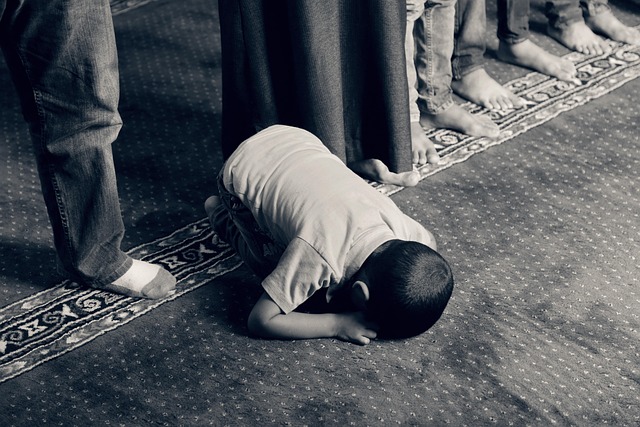
Eugene, Oregon, is a cultural hub with a diverse artistic community. Visitors can explore various ar…….
Eugene’s Cultural Vibrant Beat: Music, Art & Heritage Events
Eugene’s Street Festivals: Unity, Culture, & Diversity Unveiled
Discover Eugene’s Cultural Pulse: Theater & Workshops

Eugene, Oregon, boasts a vibrant theater scene with diverse performances year-round, showcasing loca…….

